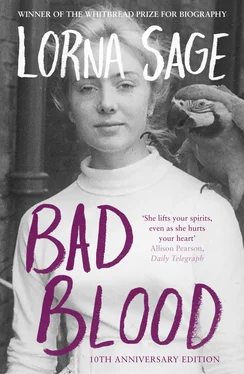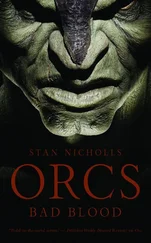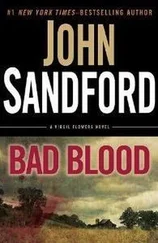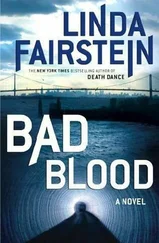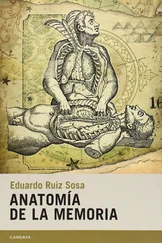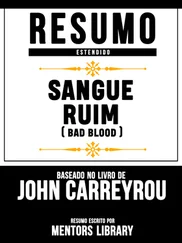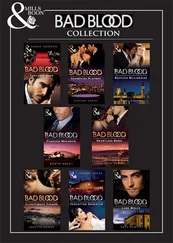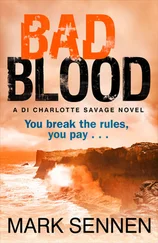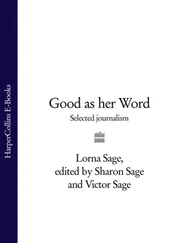How had it come about? How had he managed to fall for a girl with nearly no brains at all, and nearly no conversation except for curses and coos? With absolutely no interest in books or music or painting or anything much except peppermint creams and frilly blouses? And why did she accept a lean and hungry curate with his way to make? A clever, passionate, talented man if you believed in him, but a bookish boaster, lecher, snob, ham actor and so forth if you didn’t. They must have been mutually blinded by their dreams and needs: presumably he fell for her icing-sugar-and-spice flesh, not yet run to flab; and she for the pleasure of being courted, the prestige of being married. It seems safe to assume, from the outrage with which she referred to the whole messy business, that she married in entire ignorance of the mechanics of intercourse and childbirth, and found them hideous.
His discovery that she was barely literate and thoroughly philistine was (one imagines) less traumatic. After all, marrying a pretty, empty-headed girl was considered par for the course and still is, even in a world where couples get to know each other first. Hilda Thomas and Thomas James Meredith-Morris, back then in decorous 1916, wouldn’t have been very well acquainted. In that they were simply figures of their generation. What made their marriage more than a run-of-the-mill case of domestic estrangement was her refusal to accept her lot. She stayed furious all the days of her life – so sure of her ground, so successfully spoiled, that she was impervious to the social pressures and propaganda that made most women settle down to play the part of wife. Sex, genteel poverty, the responsibilities of motherhood, let alone the duties of the vicar’s helpmeet, she refused any part of. They were in her view stinking offences, devilish male plots to degrade her. When he took to booze and other women (which he might well have done anyway, although she provided him with a kind of excuse by making the vicarage hearth so hostile) her loathing for him was perfected. He was the one who had conned her into leaving her real home, her girlhood, the shop where you never had to pay for anything, the endless tea party. It was as though he’d invented sex and pain and want and exposure. She turned patriarchal attitudes inside out: he was God to her. That is, he was making it up as he went along, to spite her and with no higher Authority to back him up . There was no Almighty in charge, to excuse him, in Grandma’s world picture. She was an unreconstructed pagan herself, her sacraments a toasted teacake and a cup of tea, her rosary woven out of her mother’s hair. And she treated this life he offered, his shabby malicious invention, with contempt and cocooned herself in memories. The visits to Hereford Stores were her lifeline back to the world before.
Life at the shop was running down, though. Bit by bit they’d gone off their mother’s gold standard. Tom’s butchery department still seemed fairly solid, meat-rationing had buoyed it up somehow, or at least disguised the falling-off in business. But once you turned your back on his suet-and-sawdust-smelling counter and faced into Katie and Stan’s domain (which smelled acridly of tobacco, cheese, yellow soap) you could see that trade was anything but brisk. Customers came out of habit, the older ones, and because they couldn’t carry shopping bags up the hill. They bought tiny quantities in any case, rationed by poverty as much as by coupons. As I grew and 1950 loomed, the world in general began cautiously to cast off austerity, leaving Hereford Stores behind, stranded and getting gradually dustier and emptier. When I could count money well enough to be allowed to play shop, I sold untipped Woodbines in ones and twos out of an opened packet we kept by the till. My customers were stooped men with permanent bronchitis and big boys of thirteen or fourteen mysteriously off school. Men in work and their wives shopped elsewhere, except sometimes after hours, when Katie and Stan could be relied on to serve latecomers. It was the sort of shop that had almost as many customers when it was closed as when it was open. Feckless, improvident types rattled at the door at all hours wanting a few fags or half a loaf. And, of course, in search of that increasingly rare commodity that was turning out to be Katie and Stan’s special stock-in-trade: tick.
Katie doled out credit with a mixture of scandal, resignation and sympathy, clicking her tongue and sighing as she settled back into the kitchen’s fireside warmth to gossip about the after-hours callers (‘There’s cheek for you, sent that Jimmy round again, poor little tyke’). But Stan had his own infinitely more elaborate and clandestine methods, which he’d evolved during the Depression. This was all meant to be a secret – part of his furtive lunacy – but he was proud of his system, and took me on a tour of the stockrooms and the lofts above to show me how it worked. This whole building was separate from the house, a ramshackle barn-like wooden place with missing floorboards and shaky stairs. There were soap boxes, candles, piles of tin trays and jute mats, cigarettes in cartons on top away from the damp, nothing very exciting at first glance. It was only when you edged your way past this sensible stuff that you entered Stan’s Aladdin’s cave.
Piled up high, glinting and dusty, were curly metal antlers and wiry spines and whiskers that on closer inspection resolved themselves into dismembered bicycles – handlebars, wheels, plus the occasional fork or seat. There were smaller sets of wheels, too, that came in fours, from prams, and even some whole prams, parked dangerously on top of one another like an accident. He was proudest, though, of the contents of the sacks he kept, for fear of thieves, on the upper storey where the holes in the floor acted as booby traps. Here he had sacks full of ivories: confiscated piano keys, which for Stan, you could tell, represented (together with his other trophies) a cunningly accumulated fortune, the wealth of the world, pretty nearly, infinite riches in a little room.
His plan had been to confiscate people’s most vital possessions – their mobility and their music – as pledges against bad debts. They were never redeemed. Yet Stan didn’t mind, didn’t mind at all. In fact, he was as excited and pleased as if he’d invented his own currency and was a secret millionaire in it. He cherished the ivories and the bike wheels, and looked on the storerooms as a sort of safety deposit. This was his treasure, his equivalent to the collections of scented sachets and beads his sisters kept in the bedrooms. They for their part tut-tutted over his inexplicable affection for this junk, but even at the time when I was small I think I somehow understood – since I liked the prams and bikes, and was mystified and impressed by what I imagined to be the stolen teeth of all those pianos – that here was yet another annexe to the fantasy edifice of Hereford Stores. They had (save butcher Tom) all but forgotten that keeping a shop was about swapping goods for money; its real function was as a shrine to the past. Mother’s emotional generosity, her gift for giving, had turned all three into obsessive hoarders.
Their bankrupt idyll lasted for nearly ten years after the war. And even when Katie finally married, and died of a stroke horribly soon, confirming all the myths about men, Hereford Stores went on providing the ghost of a living for my mother’s disreputable brother, Uncle Bill, who joined Stan in the shadows until – some time around 1960 – he was done for receiving some hot Daz, and the CLOSED sign went up for the last time and finally meant what it said.
Grandma eked out her visits with other fantasy gratifications. She could hoard wherever she was and, although Shrewsbury and Chester were in her view not a patch on Cardiff, they would help recapture the security of streets, and their cafés and cinemas would cocoon her against the hostile whispers of the trees and the whiffs of manure. These outings were all-female, too, and involved hours of getting ready, then a lift to the train from a blaspheming Grandpa, or sometimes a taxi, all so that she’d be able to repose in the life-giving fug of a matinée at the Gaumont or the Majestic. The plush seats, the dimming of the lights and the sheen they caught on the swagged curtain as it rose, the box of chocolates, were as important as the film itself, almost. Although she loved the whole thing and entered into the spirit of the illusion so enthusiastically that she swept aside the dimension of fiction altogether. The latest Ava Gardner movie was just the most recent report on what promiscuous Ava had been up to since you saw her last: the changes of costume and setting and name were feeble disguises, and didn’t fool Grandma for a minute. She was there to witness when Joan Fontaine, for all her icy blondeness, fell for Harry Belafonte and would (she said) never trust Joan again. Grace Kelly she watched like a hawk for signs of similar leanings and was semi-confirmed when Grace married an Eye-tie. (She herself wouldn’t touch dark chocolate, even, and anyone who acquired a suntan was suspected of a touch of the tar brush.) Once television arrived in our lives she became an addict of soap operas and in particular Emergency Ward 10 , which saved her life day after dreary rural day. The box eventually became her babysitter, the last, many times removed substitute for her mother. By then I was treating her with contempt, as a senile infant, although she scared me a lot, in truth, because she represented the prospect of never growing up.
Читать дальше
